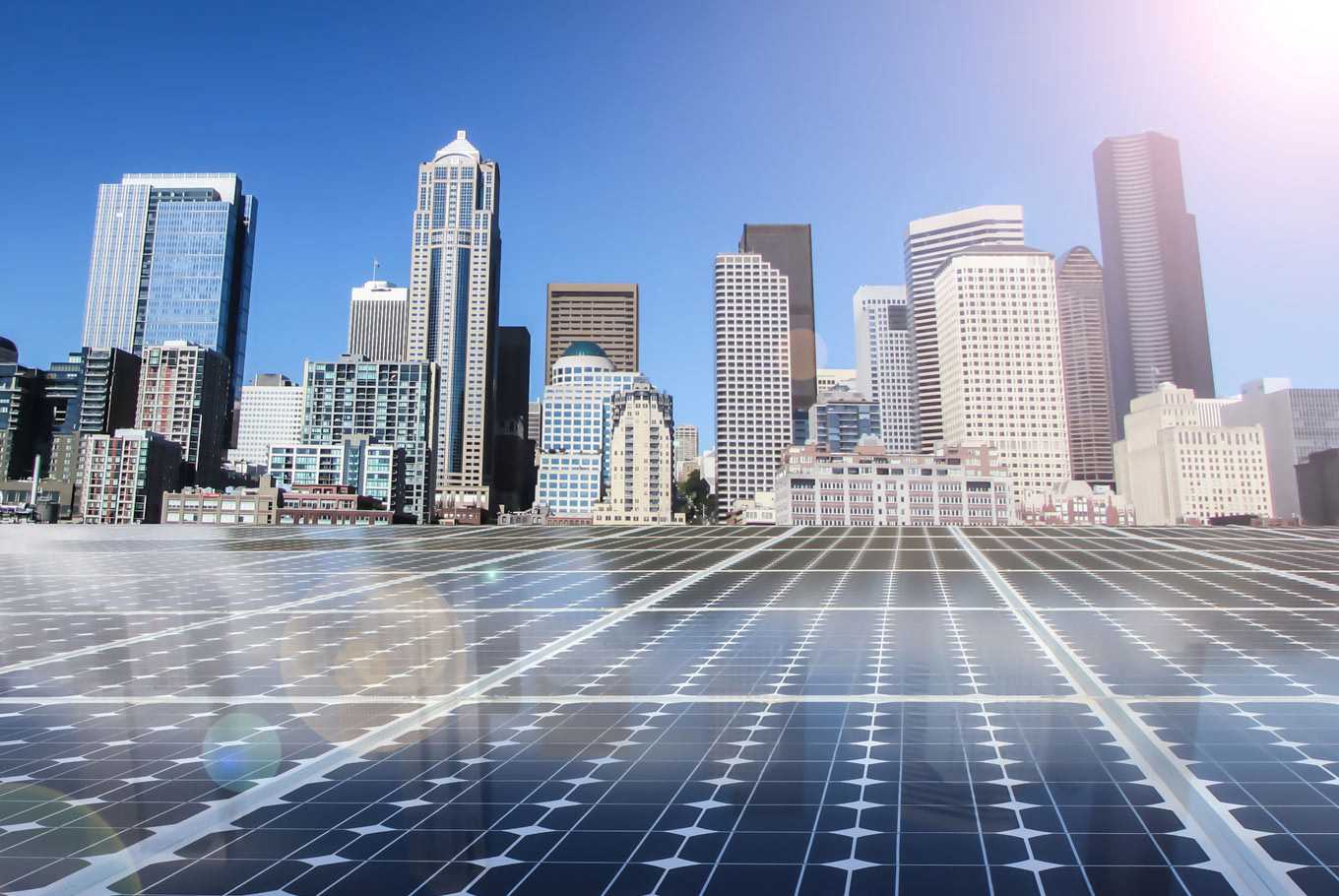Bangladeshi solar-posting start-up aims to trim power waste

Image collected
A start-up that helps rural Bangladeshi owners of house solar power devices trade their surplus electric power with their neighbors won a global award for climate transformation innovation Thursday.
SOLshare, set up in 2014, aims to stem the waste greater than a billion dollars in energy every year when home battery storage systems linked to solar panels reach capacity and excess solar powered energy generated goes unused, its officials said.
Bangladesh is probably the world's leaders found in solar home devices for off-grid communities, with an increase of than 5 million of the systems now in place.
"We've created a product that may share the surplus strength and help people earn money for this," stated Salma Islam, a good project supervisor at SOLshare, located in Dhaka.
Using an electric unit installed together with their solar program, owners can transfer surplus energy into a regional power "microgrid" created with other SOLshare users, enabling those who need more power to buy it and reducing waste.
"If someone puts the device on automode it'll automatically start selling energy once its (battery is) total," Islam said.
Homes that can't afford to get solar panels also can buy energy through the system, which Thursday won a great award for innovation found in energy gain access to from Ashden, a Uk charity that gets results to level up climate-smart energy alternatives.
Bangladesh's authorities, which aims to boost its make use of renewable strength to 10% of electrical power demand by next year, said it saw SOLshare's device seeing as a useful the main push.
"We welcome this," explained Mohammad Alauddin, chairman of Bangladesh's Sustainable and Renewable Strength Production Authority, lauding the business's grassroots focus.
He said the country is exploring a range of methods to improve gain access to to solar technology, from adding more rooftop panels to putting in some solar panels on floats on water bodies.
Bangladesh, however, also strategies to build brand-new coal-based power plants over the next two decades, which are likely to dramatically boost its reliance on highly polluting coal, according to environment groups.
The country's main way to obtain energy is gas but reserves are dwindling, according to its government.
Cheap solar
SOLshare officials said they have create 27 "microgrids" found in communities that contain installed their equipment across Bangladesh. Most their roughly 3,000 customers - most of them farmers - generate significantly less than $5 a moment, they said.
Previously, many users who couldn't afford a basic solar real estate system relied about polluting and expensive fuels like kerosene or in diesel generators, the company said.
SOLshare has helped slash usage of such fuels, even while expanding usage of electricity for those who absence it, according to Ashden.
"SOLshare is a genuine pioneer, creating neighborhood systems of energy. Their peer-to-peer solar grid program means that no solar energy is wasted. It's adding electricity into ... hard-to-reach rural communities,” explained Harriet Lamb, the CEO of Ashden.
The coronavirus pandemic has forced a large number of Bangladeshis to return with their villages from cities, causing a spike in electricity use in some of SOLshare's microgrids, company representatives said.
To support ease the burden in hard-hit families, the company decided to temporarily take away the tiny surcharge normally levied about sellers of power, Islam said.
With some charitable funding the business also offers supplied medical packages to rural communities and ideas to deliver sewing equipment to garment workers who lost their city jobs, she said.
The company is also in talks with the United Nation's refugee agency to create similar microgrids in the world's major refugee settlement in Cox's Bazar, home to more than 800,000 ethnic Rohingya refugees who fled persecution in Myanmar.
SOLshare officials said they desire to scale up their organization to allow in least 100,000 Bangladeshis to talk about solar power over another five years.
The aim is to help people "live through the use of what's already there" and harness "existing and underutilised resources", said Sebastian Groh, the CEO of SOLshare.
Among those who has benefitted from the technology is Bimal Krishna Das, 40, whose said his pharmacy business found in Barisal, about 250 kms from Dhaka, had taken popular from the coronavirus pandemic.
By selling power, he said, he could raise extra money he desperately needed.
"It’s such a comfort to have some extra cash in your pocket in this crisis," he said.
Source: https://www.thejakartapost.com